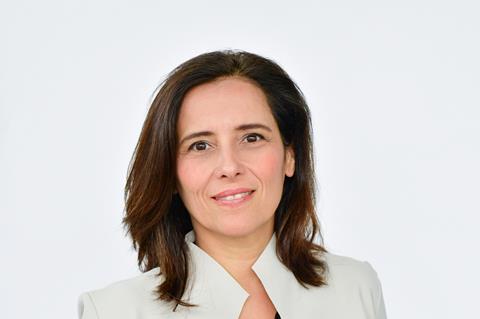Sundance 2023 will provide both a marker for the year to come in global independent filmmaking and a glimpse of what film festivals could look like in the post-pandemic era.

When Sundance Film Festival kicks off on January 19 as a hybrid physical-online event, it could offer a roadmap to both the future of this prestigious independent film showcase and to international film festivals more widely.
This year is one of transition for Sundance. It is the first in-person edition since the pandemic began, as attendees prepare to watch world premieres at beloved venues such as the Eccles and Egyptian theatres, and hammer out deals for festival acquisitions, talent representation and new projects.
Additionally, Sundance Institute CEO Joana Vicente, director of programming Kim Yutani and their team are bringing back the acclaimed online platform to accommodate those unable or unwilling to travel. Will the in-person factor revive the traditional post-opening weekend avalanche of on-site deals, or will the more languid pace of deal-making seen in the online years rule the day?
January 2023 coincides with a time when it has never been tougher to release films theatrically in the US — as evidenced by a largely dismal autumn box-office season for prestige fare, which also saw a number of studio films falter. To complicate matters, streamers developed the habit of snapping up hot Sundance titles amid pandemic cinema closures and there is still a lingering reluctance among older audiences to return to the aisles. The streamers’ deep pockets are forcing independent buyers to rethink how to compete for and release films.
This year also marks an interregnum of sorts. Vicente is serving 2023 as festival director following the appointment to that role of Eugene Hernandez, the former New York Film Festival executive director. Hernandez officially started on November 1, by which time the selection was pretty much locked and has been “a fly on the wall and thought partner”, as Vicente puts it. He will oversee his first true Sundance in 2024.
Vicente and Yutani are realistic about the complex film world dynamics and encouraged by a record 4,061 feature submissions (15,855 overall), which has given rise to a stellar line-up featuring known talents and potential breakouts.

“We are definitely prioritising in-person and we are hoping that everyone is coming back,” says Vicente, a veteran independent producer and executive who joined Sundance Institute in late 2021 after serving as Toronto International Film Festival co-head and executive director. “We know we’re in a recession and it’s hard out there for specialty films and everyone has had their budget cuts, including ourselves,” notes Vicente. “We had to deal with the deficit and figure out a sustainable way to move forward. We also know there’s this incredible energy around people craving to be back in the mountain after two years of just being digital.
“On the other hand, we’re also excited about digital,” she adds. “We’re keeping that offering for audiences starting in the second week and building on making the festival more accessible for people… so the international industry can participate.”
Every Sundance selection will premiere in-person. Press and industry delegates, wherever they are in the world, will be able to access the screenings online within two days of the premiere. The general public in the US will be able to watch select screenings online between January 24-29. In a nice touch, organisers are staging in-person screenings of Sundance award-winning selections from the past two years, such as Oscar winners CODA and Summer Of Soul and this season’s documentary awards contender Navalny.
As of early January, Sundance was keeping quiet on how many people had committed to attending in person, saying comparisons with the fully in-person pre-pandemic editions are redundant. Encouragingly, Yutani says everybody she has talked to plans to attend, adding that “it feels like every major buyer is coming”. She estimates some 80% of the selection are acquisition titles.
Hybrid highway
In the past two years, buyers have appreciated being able to watch a greater number of available titles from the comfort of their homes via the platform, as opposed to braving ice and snow as they bounce between Park City screenings. The hybrid nature of Sundance 2023 should address that. Sales agents on the other hand relish in-person premieres with multiple buyers in the room, which can lead to bidding wars and drive up asking prices.
Everybody agrees, however, that being back in person brings the opportunity to reconvene with friends and associates and assess the year ahead. Much talk will centre on what the streamers buy and how much they pay. Netflix, Hulu and HBO Max have been active for several years, while Apple stole the headlines in the past two editions, paying $25m in 2021 for eventual best picture Oscar winner CODA and $15m last year for Cha Cha Real Smooth.
Deals on buzzy films amplify awareness around the festival, but do not tell the whole story. Yutani notes the “hidden Sundance” where in‑person connections are made leading to future collaborations. “Success means different things,” Vicente adds. “Sometimes it’s about a filmmaker getting the next project, getting recognition, getting representation, getting a great review.”
The vitality of Sundance depends as much on championing work from outside the US as within. Yutani’s team of more than 20 core programmers scours festivals from Berlin, Cannes and Toronto and has used Sundance London to strengthen relationships in the UK. There was also a mass Zoom call with African filmmakers during the pandemic to learn about emerging voices from the region. Programmer Heidi Zwicker attended Durban FilmMart in South Africa where she met Nigeria-based CJ Obasi, whose Mami Wata gets its premiere in Sundance’s world cinematic dramatic competition.
This year brings rare selections in that section from Puerto Rico (La Pecera), Morocco (Animalia) and Lithuania (Slow). Among other titles that Yutani is excited for audiences to see are a trio of films from female directors of Iranian descent — Shayda and The Persian Version are in US Dramatic Competition, and Joonam is in US Documentary Competition, respectively.
These will vie for attention alongside work from returning US directors including Ira Sachs (Passages) and Nicole Holofcener (You Hurt My Feelings) in Premieres, potential discovery work in the popular NEXT section, and three experimental films from New Frontier, the section overseen by Shari Frilot that is undergoing a creative review.
Yutani also gives a shoutout to 20 Days In Mariupol from Ukraine, Estonia’s Smoke Sauna Sisterhood and Chilean filmmaker Maite Alberdi’s The Mole Agent follow-up The Eternal Memory (all playing in world cinema documentary competition), as well as Anthony Chen’s Drift starring Cynthia Erivo in Premieres.
The make-up of the festival is increasingly diverse. Of the 110 features screening at the festival, filmmakers who identify as women have directed 59 (57%), those who identify as people of colour directed 49 (45%), 20 (18%) hailed from filmmakers who identify as LGBTQ+, and three (3%) from those who identify as a person with a disability. Directors identifying as women account for 19 out of 22 first-time narrative features, and 14 out of 15 documentary first-timers.
And the team is always looking ahead — Yutani notes, only part joking, that the selection process for 2024 will start “the day after this year’s festival ends”.
























No comments yet